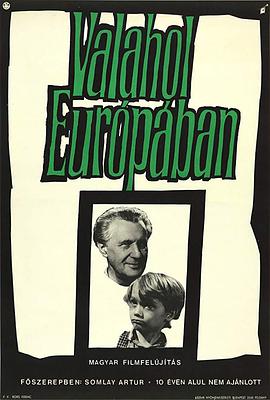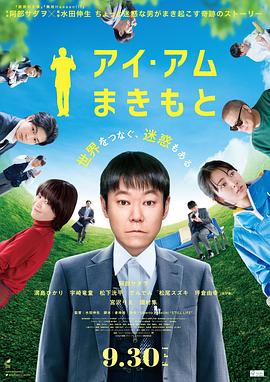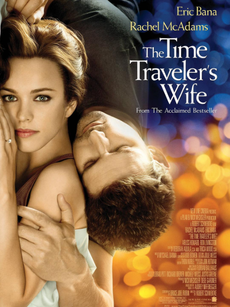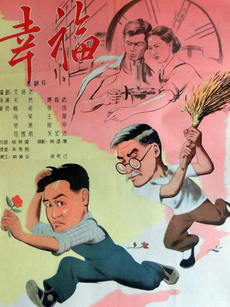
导演:
上映:
1948-11-19
备注:
HD中字
TAG:
未知
剧情:
Somewhere in the remote region, the war ends. In the midst of ruined cities and houses in the streets, in rural hamlets, everywhere where people still live, are children who have lost their homes and parents. Abandoned, hungry, and in rags, defenseless and humiliated, they wander through the world. Hunger drives them. Little streams of orphans merge into a river which rushes forward and submerges everything in its path. The children do not know any feeling; they know only the world of their enemies. They fight, steal, struggle for a mouthful of food, and violence is merely a means to get it. A gang led by Cahoun finds a refuge in an abandoned castle and encounters an old composer who has voluntarily retired into solitude from a world of hatred, treason, and crime. How can they find a common ground, how can they become mutual friends? The castle becomes their hiding place but possibly it will also be their first home which they may organize and must defend. But even for this, the price will be very high. To this simple story, the journalist, writer, poet, scriptwriter, movie director, and film theoretician Béla Balázs applied many years of experience. He and the director Géza Radványi created a work which opened a new postwar chapter in Hungarian film. Surprisingly, this film has not lost any of its impact over the years, especially on a profound philosophical level. That is to say, it is not merely a movie about war; it is not important in what location and in what period of time it takes place. It is a story outside of time about the joyless fate of children who pay dearly for the cruel war games of adults. At the time it was premiered, the movie was enthusiastically received by the critics. The main roles were taken by streetwise boys of a children's group who created their roles improvisationally in close contact with a few professional actors, and in the children's acting their own fresh experience of war's turmoil appears to be reflected. At the same time, their performance fits admirably into the mosaic of a very complex movie language. Balázs's influence revealed itself, above all, in the introductory sequences: an air raid on an amusement park, seen in a montage of dramatic situations evoking the last spasms of war, where, undoubtedly, we discern the influence of classical Soviet cinematography. Shooting, the boy's escape, the locomotive's wheels, the shadows of soldiers with submachine guns, the sound of a whistle—the images are linked together in abrupt sequences in which varying shots and expressive sharp sounds are emphasized. A perfectly planned screenplay avoided all elements of sentimentality, time-worn stereotypes of wronged children, romanticism and cheap simplification. The authors succeeded in bridging the perilous dramatic abyss of the metamorphosis of a children's community. Their telling of the story (the scene of pillaging, the assault on the castle, etc) independently introduced some neorealist elements which, at that time, were being propagated in Italy by De Sica, Rossellini, and other film artists. The rebukes of contemporary critics, who called attention to "formalism for its own sake" have been forgotten. The masterly art of cameraman Barnabás Hegyi gives vitality to the poetic images. His angle shots of the children, his composition of scenes in the castle interior, are a living document of the times, and underline the atmosphere and the characters of the protagonists. The success of the picture was also enhanced by the musical art of composer Dénes Buday who, in tense situations, inserted the theme of the Marseilaise into the movie's structure, as a motive of community unification, as an expression of friendship and the possibility of understanding. Valahol Europaban is the first significant postwar Hungarian film. It originated in a relaxed atmosphere, replete with joy and euphoria, and it includes these elements in order to demonstrate the strength of humanism, tolerance, and friendship. It represents a general condemnation of war anywhere in the world, in any form.收起
相关影片
2022电影日本
正片
正片
2025电影美国
西德尼·帕克 Anna Campbell Gerry Bednob Graham Sibley 瑞提什·拉詹 罗伯托·阿奎尔 埃尔南·门多萨 Selina Ringel 玛丽安娜·布雷利 Fiorella Vescovi García Kyle Trueblood Saleena Khamamkar Veronica Scheyving Ernesto Ruiz Ángel Cortés Anaina Francisco Acero García Brian Girón Frederico Jose Fe
对于 Mags 和 Ash 来说,婚姻变成了一系列的争吵和妥协,让他们都渴望更多。这是他们成为父母后第一次单独度假,他们的争吵威胁着要毁掉这次旅行——直到他们遇到了 Angela,一个自由奔放的数字游
正片
2022电影日本
正片
2024电影德国
耶拉·哈泽 吉泽姆·埃姆雷 Mido Kotaini 马克斯·冯·德·格罗本 玛丽亚·艾维克 诺拉·茨切纳 弗雷德里克·劳 Cooper Dillon 亚历山德拉·玛丽亚·拉娜 Elena Uhlig Maria Happel Nico Stank Ben Felipe 米莲娜·柴特克 贾斯敏·沙克里 雅尼克·许曼 保拉·科伯 Nikeata Thompson Christina Baumer Richard Cwiertnia
香塔尔和她最好的朋友泽伊内普误入了一面魔镜,误以为这是一个社交媒体噱头。香塔尔利用自己的公主身份创作内容,却发现自己置身于“睡美人”的故事之中。一路上,他们遇到了一些非同寻常的人物,比如拒绝结婚的阿玛
正片
2024电影德国,奥地利
Carag, half-human, half-mountain lion, is a shape-shifter who grew up in the wilderness of the Rocky
正片
2020电影不详
第6集完结
2024电影德国,加拿大
正片
2025电影法国
正片
2014电影日本
第21集
2020电影不详
第12集完结
2025电影中国大陆
第25集完结
2024电影美国
当娜塔莉·约翰斯顿的读书俱乐部收到匿名举报信,揭露了会员们最黑暗的秘密时,她以为自己已经做好了最坏的打算……直到一封信诬告她15岁的女儿犯下滔天罪行。随着指控四起,情况变得危急,娜塔莉必须找出幕后黑手
正片
2025电影日本
合唱部部长聪实被黑道小哥成田狂儿缠上,要求他教自己唱歌。狂儿所在的集团因为老大的爱好经常举办卡拉 大赛,输掉的人身上会被老大刺青,而且刺的是每个人特别讨厌的图案。“去唱卡拉 吧!”聪实每周都不情不
正片
2025电影美国
亚当·桑德勒 本·斯蒂勒 朱丽·鲍温 克里斯托弗·麦克唐纳 玛格丽特·库里 坏痞兔 本·萨弗迪 Jacqueline Sophia London 丹尼斯·杜根 尼克·斯旺森 特拉维斯·凯尔西 斯万米·萨姆派奥 丹妮·迪特 马克斯韦尔·弗里德曼 Lee Trevino Scott Vogel Tierre Diaz 汤姆·约翰逊 Cassie Miller 彼得·曼森·霍根
续集将讲述他从一名弃将变成高尔夫球手的故事,他参加了一场高级高尔夫巡回赛。
正片

















